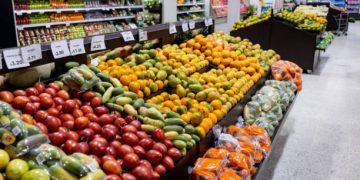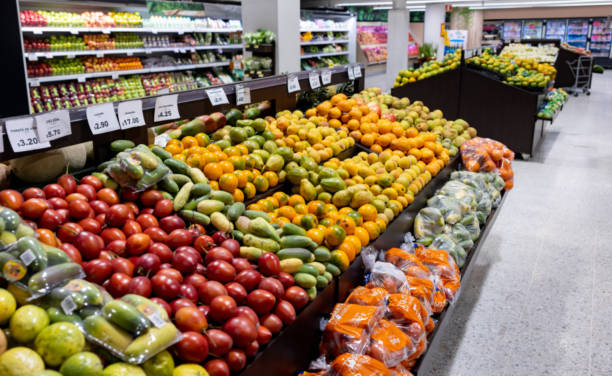Pakistani cuisine is a rich tapestry of bold flavors, aromatic spices, and time-honored cooking techniques passed down through generations. From the bustling streets of Lahore to the peaceful valleys of Hunza, every region brings its own flair to the table. At the heart of this diverse cuisine lies a collection of essential ingredients—authentic Pakistani groceries—that make it all possible.
For Pakistani families living abroad or food lovers wanting to explore traditional South Asian cooking, finding the right groceries is crucial. These ingredients not only carry the flavor but also the cultural heritage of Pakistan, connecting people to their roots and memories of home-cooked meals.
Core Ingredients in Pakistani Cooking
Authentic Pakistani cooking begins with a foundation of staple ingredients that are used daily in households across the country:
- Basmati Rice
No Pakistani kitchen is complete without basmati rice. Long-grained, fragrant, and light, it’s the go-to for dishes like biryani, pulao, and kheer (rice pudding). Basmati rice grown in Punjab is especially prized for its aroma and texture.
- Atta (Whole Wheat Flour)
Used to make roti, paratha, and chapati, this finely ground whole wheat flour is a daily essential. Authentic Pakistani atta gives bread its distinct texture and taste—soft yet slightly chewy with a nutty aroma.
- Pulses and Lentils (Daal)
From masoor (red lentils) to chana daal (split chickpeas) and moong daal, lentils are an important source of protein in Pakistani households. They are cooked in various ways and served with rice or roti for a hearty vegetarian meal.
The Spice of Life: Pakistani Masalas
Pakistani food is renowned for its rich, layered flavors, achieved by using a range of whole and ground spices, commonly referred to as masalas. These include:
- Haldi (Turmeric) – Adds color and earthy depth.
- Zeera (Cumin) – Whole or ground, used in tempering and spice blends.
- Dhaniya (Coriander) – Seeds or powder, adds citrusy warmth.
- Garam Masala – A blend of warm spices including cloves, cardamom, cinnamon, and nutmeg.
- Lal Mirch (Red Chili Powder) – Ranges from mild to hot, used in almost all savory dishes.
These spices, often hand-ground or custom-blended at local spice markets, are key to bringing the authentic Pakistani flavor profile into any kitchen.
Popular Pantry Essentials
Beyond the basics, Pakistani groceries include several pantry items unique to the cuisine:
- Pickles (Achar): Made from mangoes, lemons, carrots, or mixed vegetables, Pakistani achars are spicy, tangy, and oil-based, perfect for pairing with rice or paratha.
- Chutneys: Whether mint, tamarind, or garlic-based, chutneys add freshness and zing to meals.
- Desi Ghee: Clarified butter used in both sweet and savory dishes. It enhances aroma and taste, especially in festive dishes like halwa or biryani.
- Tea (Chai): Loose black tea is boiled with milk, cardamom, and sometimes fennel to create the perfect cup of Pakistani chai.
- Legumes & Beans: Rajma (kidney beans), lobia (black-eyed peas), and mash daal (urad daal) are used in everyday cooking.
Snacks and Sweets
Authentic Pakistani grocery stores often carry beloved snacks and sweets:
- Nimco & Sev: Savory fried snacks made from gram flour and spices.
- Pakoras: Often prepared at home with gram flour and vegetables, but also available as ready mixes.
- Sweets like Gulab Jamun, Barfi, and Jalebi: Available fresh or pre-packaged, these are central to Pakistani celebrations and special occasions.
Frozen and Ready-to-Cook Foods
Modern Pakistani grocery stores now stock a variety of frozen parathas, kebabs, samosas, and even pre-cooked gravies. While nothing beats the taste of homemade food, these ready options are great for busy households looking for convenience without sacrificing authenticity.
Finding Authentic Pakistani Groceries Abroad
With growing South Asian communities around the world, it’s easier than ever to find Pakistani grocery stores in the US, UK, Canada, Middle East, and beyond. These stores often carry brands like Shan, National, Tapal, Mitchell’s, and Habib that are trusted back home.
Online grocery platforms are also expanding, offering worldwide delivery of Pakistani products. Whether it’s a packet of nihari masala or a jar of mango pickle, these items can now be ordered from the comfort of home.
Preserving Culture Through Food
For many Pakistanis abroad, cooking with authentic groceries is about more than taste—it’s about identity, memory, and belonging. Sharing a home-cooked meal of haleem, karahi, or saag allows families to stay connected to their roots and pass on traditions to the next generation.
Authentic Pakistani groceries are not just ingredients—they are carriers of culture. Whether you are a seasoned home chef or just beginning to explore South Asian cuisine, stocking your pantry with these essentials is the first step to recreating the warmth and richness of Pakistani hospitality.




























































